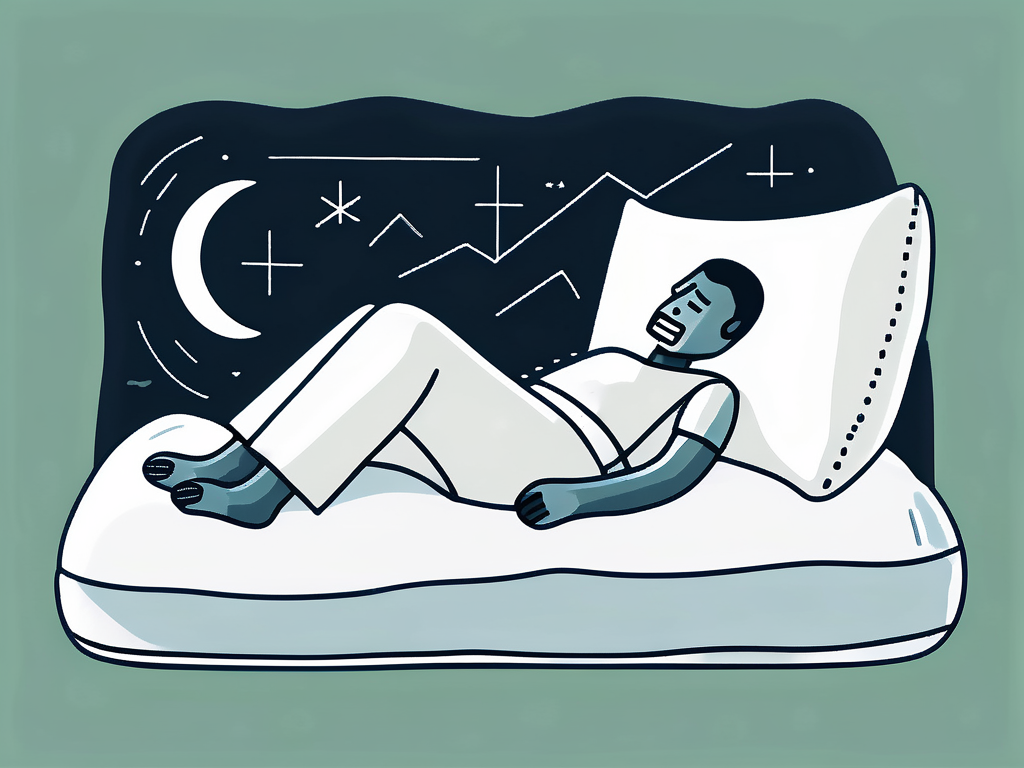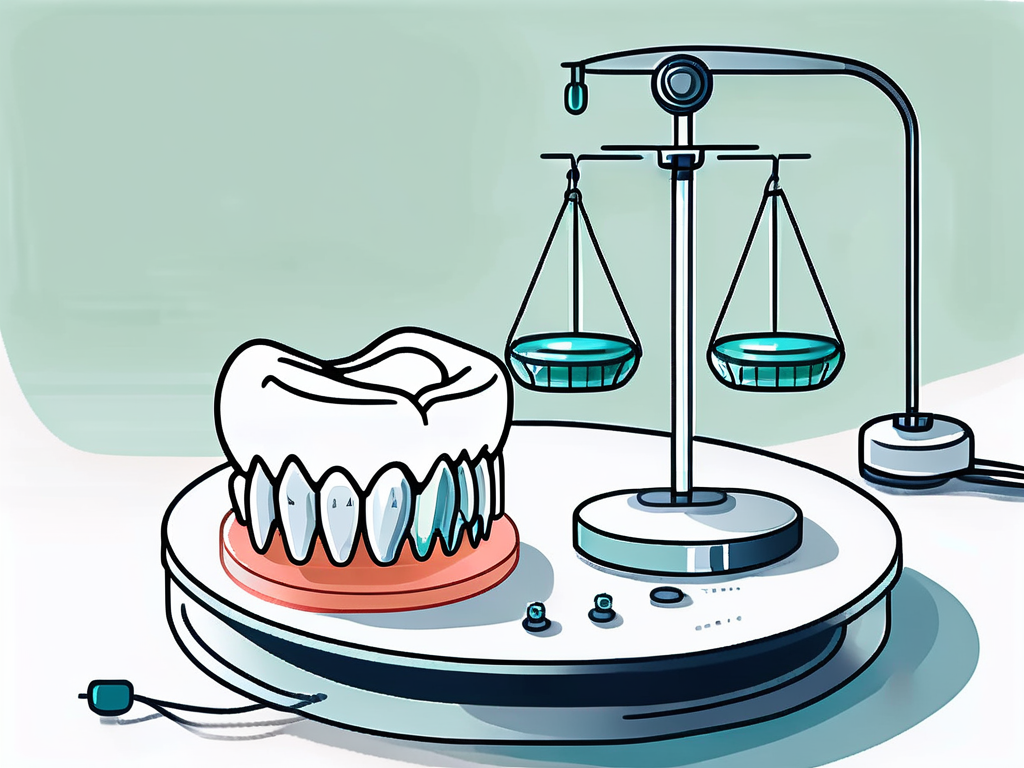Mouth guards are commonly prescribed by dentists as a solution for various dental problems, such as teeth grinding (bruxism) and temporomandibular joint disorder (TMJ). While mouth guards provide numerous benefits for individuals suffering from these conditions, it is essential to consider the potential downsides associated with wearing a mouth guard. This article explores the various drawbacks of using a mouth guard, ranging from discomfort and inconveniences to more long-term effects and challenges in proper care and maintenance.
Understanding the Purpose of a Mouth Guard
Before delving into the downsides, it is crucial to understand the purpose of mouth guards and their role in dental health. Mouth guards are custom-made devices that fit over the teeth to provide a protective barrier. They aim to prevent further damage caused by bruxism, alleviate jaw pain and headaches, and improve overall oral health.

When it comes to oral health, mouth guards play a significant role in protecting the teeth and jaw from the harmful effects of bruxism, a condition characterized by grinding or clenching of teeth, often unconsciously during sleep. By creating a physical barrier between the upper and lower teeth, mouth guards help minimize the impact of these forces, preserving the tooth enamel and reducing the risk of dental complications.
The Role of Mouth Guards in Dental Health
Mouth guards act as a cushion, absorbing the powerful forces created during teeth grinding or clenching. By redistributing the pressure exerted on the teeth and jaw, they help reduce wear and tear, prevent tooth fractures, and potentially slow down the progression of TMJ disorders.
Moreover, mouth guards can aid in maintaining proper jaw alignment and muscle relaxation, which are crucial for preventing tension headaches and temporomandibular joint (TMJ) pain. By promoting a more stable and comfortable oral environment, mouth guards contribute to a better quality of sleep and overall well-being.
Common Reasons for Using a Mouth Guard
Patients seek mouth guards for a variety of reasons. Besides addressing bruxism and TMJ disorders, mouth guards can also be used to alleviate symptoms of sleep apnea, facilitate orthodontic treatments, protect dental restorations (such as crowns and bridges), and even enhance athletic performance by providing jaw support during sports activities.
For individuals undergoing orthodontic treatment, wearing a mouth guard can help prevent damage to braces or other appliances caused by teeth grinding. Additionally, athletes involved in contact sports can benefit from the protective function of mouth guards, reducing the risk of dental injuries and ensuring optimal performance on the field.
Potential Discomforts and Inconveniences of Mouth Guards
While mouth guards offer numerous benefits, they can also present some discomfort and inconveniences, particularly during the initial stages of use.
Understanding the potential discomforts and inconveniences associated with mouth guards is crucial for individuals considering their use for oral health purposes. It is essential to be aware of the challenges that may arise to make an informed decision and effectively manage any issues that may occur.
Physical Discomfort and Adjustment Period
When first wearing a mouth guard, many individuals experience initial discomfort, such as soreness in the jaw, teeth, or facial muscles. Additionally, the presence of a foreign object in the mouth may cause an adjustment period, affecting speech, swallowing, and even breathing. However, these symptoms usually subside as the mouth adapts to the mouth guard.
During the adjustment period, it is recommended to wear the mouth guard for short periods initially and gradually increase the duration to allow the mouth and muscles to acclimate to the device. This gradual approach can help minimize discomfort and ensure a more comfortable experience with the mouth guard over time.
Potential Speech and Breathing Difficulties
In rare cases, the bulkiness of certain mouth guards or misalignment of the device may affect speech, causing lisping or slurred words. Furthermore, individuals with nasal congestion or breathing difficulties might find it challenging to breathe comfortably with a mouth guard in place. In such instances, consulting a dentist to adjust or modify the mouth guard may be necessary to alleviate these issues.
It is important to communicate any speech or breathing difficulties experienced while wearing a mouth guard to your dentist promptly. Dentists can make necessary adjustments to the mouth guard to improve comfort and functionality, ensuring that the benefits of using the device outweigh any initial inconveniences.
Long-Term Effects of Wearing a Mouth Guard
While mouth guards can provide immediate relief, their prolonged use may lead to some long-term effects that require consideration.

It is essential to understand that the benefits of mouth guards are not without potential drawbacks. Extended use of these dental appliances can have implications beyond their initial purpose of protecting teeth from grinding and clenching.
Changes in Bite and Jaw Alignment
Depending on the individual's grinding intensity and the duration of mouth guard usage, there is a possibility of developing changes in bite and jaw alignment. Teeth may shift or become misaligned over time, potentially leading to occlusion problems. Regular dental check-ups and adjustments can help monitor any bite changes and ensure the mouth guard's effectiveness in managing these issues.
Moreover, the alteration in the positioning of the teeth and jaws can impact not only the aesthetic appearance of the smile but also the overall functionality of the mouth. Misaligned bites can lead to difficulties in chewing, speaking, and even cause discomfort in the temporomandibular joint (TMJ).
Dependency and Overuse Concerns
Wearing a mouth guard regularly might inadvertently lead to dependency, as the jaw muscles adapt to the device's presence. Over time, this can result in weaker jaw muscles and potentially exacerbate bruxism or TMJ disorders when the mouth guard is not being worn. Therefore, it is important to consult with a dentist to determine the appropriate duration and frequency of mouth guard usage.
Furthermore, individuals who rely heavily on mouth guards may find themselves struggling to sleep comfortably without them. This reliance can create a psychological dependence on the appliance, making it challenging to break the habit of wearing it every night. Finding a balance between the therapeutic benefits of the mouth guard and preventing overreliance is crucial for long-term oral health.
Proper Care and Maintenance Challenges
Just like any dental appliance, mouth guards require proper care and maintenance to ensure their longevity and effectiveness.
Ensuring the durability and functionality of your mouth guard involves more than just a cursory rinse. Understanding the intricacies of cleaning and hygiene practices can significantly impact the overall health of your oral cavity. Neglecting proper cleaning routines can result in the accumulation of harmful bacteria, leading to unpleasant consequences such as bad breath and potential oral infections.
Cleaning and Hygiene Issues
Failure to clean the mouth guard regularly can lead to bacterial growth, bad breath, and oral infections. Mouth guards should be rinsed thoroughly after each use and brushed using a soft toothbrush and mild soap or denture cleaner to remove plaque and debris. Soaking them in a denture cleanser or non-alcoholic mouthwash can also aid in disinfection. Avoid using hot water or abrasive cleaners to prevent warping or damaging the mouth guard.
Furthermore, the environment in which you store your mouth guard plays a crucial role in its cleanliness. Storing it in a well-ventilated container or case can prevent the build-up of moisture, which can harbor bacteria. Additionally, regular inspection for any signs of wear and tear can help you address potential issues before they escalate, ensuring the longevity of your mouth guard.
The Cost of Replacement and Repairs
Mouth guards, especially custom-made ones, can be costly to replace or repair. Accidental damage, wear and tear, or a change in the fit due to dental changes may necessitate investing in a new mouth guard. Therefore, it is important to handle the mouth guard with care, store it properly when not in use, and seek professional assistance if any issues arise.
Investing time and effort in the maintenance of your mouth guard can not only save you from unnecessary expenses but also contribute to your overall oral health and well-being. By incorporating proper care habits into your daily routine, you can ensure that your mouth guard remains a reliable ally in protecting your teeth and jaws during sleep.
Weighing the Pros and Cons of Mouth Guards
When considering the downsides of wearing a mouth guard, it is essential to weigh them against the potential benefits and the individual's specific needs.

Assessing the Necessity of a Mouth Guard
Consulting with a dental professional is crucial in determining whether a mouth guard is necessary or if alternative treatments can address the underlying dental concerns. Each case is unique, and the decision to use a mouth guard should be based on a comprehensive evaluation of the individual's oral health, lifestyle, and specific condition.
Alternatives to Wearing a Mouth Guard
In some cases, alternative treatment options might be considered instead of wearing a mouth guard. These options may include cognitive behavioral therapy to address teeth grinding habits, stress management techniques, orthodontic interventions, or other dental appliances tailored to the individual's needs. Exploring these alternatives with a dentist can help find the best solution for the individual.
While mouth guards offer significant benefits in managing conditions related to dental health, it is imperative to consider their potential downsides. By weighing the pros and cons, consulting with dental professionals, and properly maintaining the mouth guard, individuals can make informed decisions to ensure optimal oral health and overall well-being.













